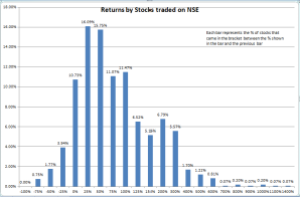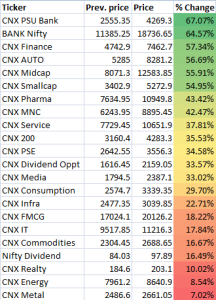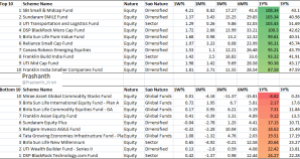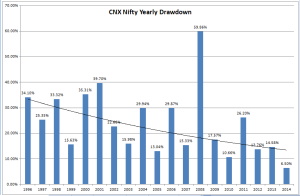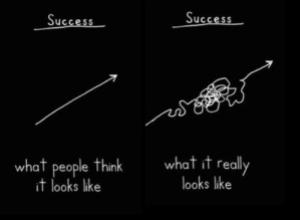And so comes to a close the year 2014 which will be remembered for the fact that after 3 decades, India saw a party come to power in the Center with a majority on its own. Markets welcomed the move by breaking out of its mutli-year high and closing the year with one of the best gains since 2009.
But the returns of CNX Nifty / Sensex which came in at 31.4% / 29.9% hides the fact that this year, stocks outperformed the broader indices in a major way.
On the NSE, we saw 62.5% of stocks beating CNX Nifty returns with as many as 40% of stocks recording 100%+ returns.
Here is a snapshot of the same
Just 16% of NSE listed stocks closed the year in negative. So, if your portfolio ended in negative returns by any chance, you have around 245 stocks to blame for the damage.
Among NSE Sector / Thematic Indices, CNX PSU Bank Index representing Public Sector Banks bounced back strongly in the year. With rising bad loans and the economy slowing down, PSU Banks had borne the brunt in 2013. But even after this year tremendous rally, the Index is still 21% from its 2008 high. The fact that Bank Nifty where the Index has private sector banks as well among its constituents is up 74% from the 2008 tells its own story.
Though CNX Metal Index closed on a positive note, this along with sectors such as CNX Energy, CNX Infra and CNX Realty have a long way to go before investors start seeing any money on investments made before the 2008 crash.
Gold continued to drop for the Second year in succession and this drop would have been even more severe if not for the saving grace of Rupee depreciation. After falling more than 20% from the peaks, Gold is now into bearish territory and unless the world sees a sudden spike in volatility, it may remain so for the foreseeable future.
Mid and Small cap mutual funds were the flavor of the season and registered strong gains with many doubling through the year. Global funds though did not have that luck with most of them ending at the bottom of the heap.
A list of the Best and Worst 10 stocks on NSE based on their returns. No major names in the winners though Bhushan makes it to the losing list having lost more than 80% of its value during the year
CNX Nifty Price Earnings ratio was around the long term average when we closed for business in 2013. This year, its testing its 1 Standard Deviation. As history shows, this is expensive, but not bubble region.
While among International Indices, we rank Number 3 in terms of Returns for the year, India has been the flavor of the season among Internatonal funds which inturn has been reflected by strong inflows from FII’s even as commodity exporters like Brazil and Russia crumbled.
This year was the second time (first being in 2012) we did not see a one day fall of 3% or more through the year. Its been 324 days and counting since the last such fall. Markets are not a one way street and we should be ready to see some amount of volatility as we go into 2015.
A histogram chart of Sensex returns by the year
This year saw the lowest intra-year draw-down ever seen in Nifty. Purely based on reversion to the mean, we should see a higher number going forward unless we get hit by a white swan 🙂
The forthcoming budget will be the first big test both for the markets and the government. But either way, opportunities are there for those prepared.
Wishing you all a happy, healthy and prosperous New Year. Thanks for reading.
